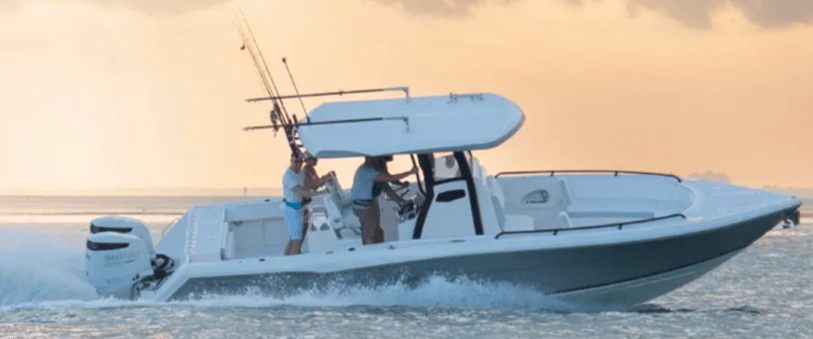
Embarking on a boating adventure can be exciting, but it's important to remember that safety should always come first. Learning from the mistakes of others can help ensure that your boating experience is enjoyable and stress-free. For this reason, we have put together a comprehensive list of the most common boating mistakes, so that you can avoid these pitfalls and have a smooth boating experience.
- You forgot to put in the drain plug for the boat.
It is crucial to remember to install the boat's drain plug before putting it in the water, as failure to do so will result in water flowing into the boat. Even the most experienced boaters sometimes forget this step, and if you do not notice in time, your boat may sink. Similarly, removing the boat plug while it is in the water can also lead to water entering the boat. Therefore, it is essential to double-check the drain plug before launching your boat.
2. Running out of fuel
It's important to keep in mind that various factors like sea conditions and load can affect your boat's fuel consumption and range. Additionally, fuel gauge readings can be misleading due to fuel sloshing in the tank. If you run out of fuel, you'll be left with no means of propulsion unless you have alternative options like sails, oars or paddles, or help arrives. To avoid this, it's recommended to follow a simple formula: use one third of the fuel capacity when going out, another third when returning, and keep the remaining third as a reserve.
3. Did you check the weather?
As a skipper, it is of utmost importance to prioritize the safety of the crew while boating. One of the key factors that can affect the safety of the crew is the weather conditions. It is crucial to be aware that weather can change unexpectedly and rapidly, and even in freshwater, it can cause a catastrophic impact. Hence, it is imperative to keep a close watch on the weather forecast and analyze the changing conditions before embarking on a boating trip. By doing so, the skipper can take necessary measures to ensure the safety of the crew and prevent any unwanted accidents or mishaps.
4. Don’t get stuck
It's important to understand that running aground while boating is a common occurrence, and its severity can vary depending on where you are. On a soft mud or sand bottom, it may not be a big deal; however, in a rocky harbor, it can cause significant damage. When you're boating in estuaries where the water depth is affected by tides, it's always a good idea to examine the sand banks during low tide to ensure the path you take during high tide is free from obstacles. It's crucial to be aware of your location and what underwater hazards may be present. If in doubt, slowing down is the best option.
5. Keep your boat and outboard maintained
Inspecting your boat regularly for signs of wear and tear is essential in ensuring that your boating adventures remain safe and enjoyable. This includes checking for any leaks, cracks, or other damage that may compromise the safety and integrity of your vessel. Additionally, it's crucial to examine the battery connections and wiring to guarantee they are functioning correctly. Keeping up with the necessary outboard services is also vital to ensure a smooth ride and avoid any unexpected interruptions during your trip. By taking these measures, you can enjoy a worry-free boating experience and make lasting memories on the water.
6. Running your outboard with no water
To prevent any damage to the engine, it's essential to attach a hose to the motor's water intakes before running it. In case your motor doesn't have built-in attachments, you can use a set of motor flusher muffs. If you're flushing the motor, it's recommended to run it for 5 to 10 minutes. However, if you're running the engine for some other purpose, like testing its function, run it for as long as your maintenance task requires. It's crucial not to leave the engine unattended while running.
7. Know your knot
When mooring your boat, it is important to tie it up properly to prevent it from floating away. You can learn to tie a cleat hitch knot to ensure that your boat is securely moored and does not hit the docks.
8. Approaching the dock too fast.
Approaching the dock at the speed you are prepared to hit it is the key to successful docking. Docking a boat can be a tricky skill to master, but taking it slow gives the skipper more options without risking any damage to the boat.
9. Why are we still drifting?
When dropping anchor, first find out the depth of the water where you want to anchor. You can use a depth finder if your boat has one. The water depth will determine how much anchor scope you will need. Anchor scope refers to the ratio of the length of the anchor rope to the depth of the water. Lastly, it is important to never tie off an anchor to the stern of your boat.
10. Too many aboard
It's important that you don't overload your boat, as it can have severe consequences. Overloading a boat can affect its stability, handling, and make it more prone to swamping and capsizing. When you add too much weight to a boat, it sits lower in the water and the extra weight reduces its buoyancy reserves. Every boat has a passenger capacity that it's rated for, so be sure to follow the rating and never exceed it.
Enjoy safe boating this summer with your trusted Suzuki!
